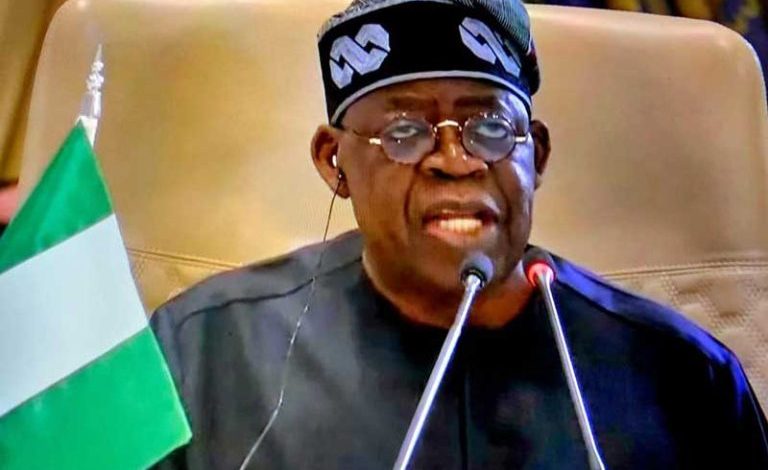…As lawmakers, service chiefs push for urgent constitutional reforms
President Bola Ahmed Tinubu has declared the establishment of state police no longer optional, calling it a “national imperative” to confront Nigeria’s deepening security crisis.
Speaking on Monday through the Minister of Defence, Mohammed Badaru, at a high-level legislative dialogue on national security and constitutional reform, Tinubu said the centralised policing model has outlived its usefulness.
The dialogue, organised by the House of Representatives Committee on Constitution Review in collaboration with the Office of the National Security Adviser, brought together top lawmakers, service chiefs and security experts to chart a way forward for Nigeria’s fragile security framework.
“The debate over state police is no longer academic. It is rooted in the daily fears of Nigerians—farmers afraid to till their land, traders uncertain of safe passage, and communities forced into self-help,” Tinubu said.
He described the 1999 Constitution as foundational to Nigeria’s democracy but increasingly outdated in confronting the country’s complex security challenges, including terrorism, cybercrime, farmer-herder clashes, piracy, and separatist violence.
“Our Constitution must evolve or risk becoming a threat to the very unity it was meant to preserve,” the President warned.
Tinubu advocated bold amendments to move policing from the Exclusive to the Concurrent Legislative List, a change that would allow states to establish and control their own police forces, subject to federal oversight.
“We must adapt global best practices that balance decentralised policing with national cohesion. Without constitutional support, community-based policing initiatives will remain ineffective,” he said.
His remarks align with increasing calls by governors, traditional rulers and civil society for a decentralised security framework amid rising insecurity across the country.
Despite recent gains against insurgents, Tinubu acknowledged that constitutional constraints continue to undermine lasting progress.
He praised improved coordination among security agencies, highlighting joint task forces, intelligence fusion, and air-ground offensives that have dismantled terror camps in the North-East and criminal enclaves in the North-West.
Maritime security has also improved, with piracy and high-profile kidnappings declining in recent months.
Yet, Tinubu noted, without structural reforms and clear legal mandates, these gains remain fragile.
He identified porous borders as a major national security weakness, enabling arms smuggling and transnational terrorism. “There must be legal clarity on the roles of federal and state actors in border security,” he said.
He also highlighted efforts to protect schoolchildren through the establishment of the National Safe Schools Response Coordination Centre and the approval of community policing frameworks.
“But these reforms require constitutional muscle to be truly impactful,” he said, urging lawmakers to act with urgency.
> “Let history record that in this chamber, Nigeria’s leaders chose courage over caution, and reform over inertia.”
Speaker of the House, Tajudeen Abbas, in his remarks, said the dialogue was timely and essential, given Nigeria’s worsening security landscape.
“We must move beyond motions and embrace legislative action,” he said. “The goal is to reposition our security architecture to reflect current realities.”
Deputy Speaker Benjamin Kalu, who chairs the Constitution Review Committee, said reforms must be based on practical realities from frontline operators.
“We are here to listen to those who wear the uniform and understand the pain points,” he said.
Chief of Defence Staff, General Christopher Musa, called for amendments to the Armed Forces Act and constitutional provisions that clarify the military’s role in internal security.
He advocated for field and standing court-martials across military commands, legal backing for military detention powers during internal operations, and joint inland patrols between the Navy, Customs and Immigration.
“Security is not just about weapons; it is about legal clarity, institutional integrity and public confidence,” Musa stated.
National Security Adviser, Nuhu Ribadu, represented by Maj. Gen. Adamu Laka, warned that constitutional reform is central to national survival.
“A responsive constitution that reflects the realities and aspirations of Nigerians is critical to building public trust,” Ribadu said.
He urged the National Assembly to decentralise service delivery and enhance institutional capacity through the ongoing constitutional review.
“As we deliberate, let us remember that this is not just a technical exercise. It is about safeguarding the sovereignty and future of our Republic,” he said.
Do you want to share a story with us? Do you want to advertise with us? Do you need publicity for a product, service, or event? Contact us on WhatsApp +2348183319097 Email: platformtimes@gmail.com
We are committed to impactful investigative journalism for human interest and social justice. Your donation will help us tell more stories. Kindly donate any amount HERE






